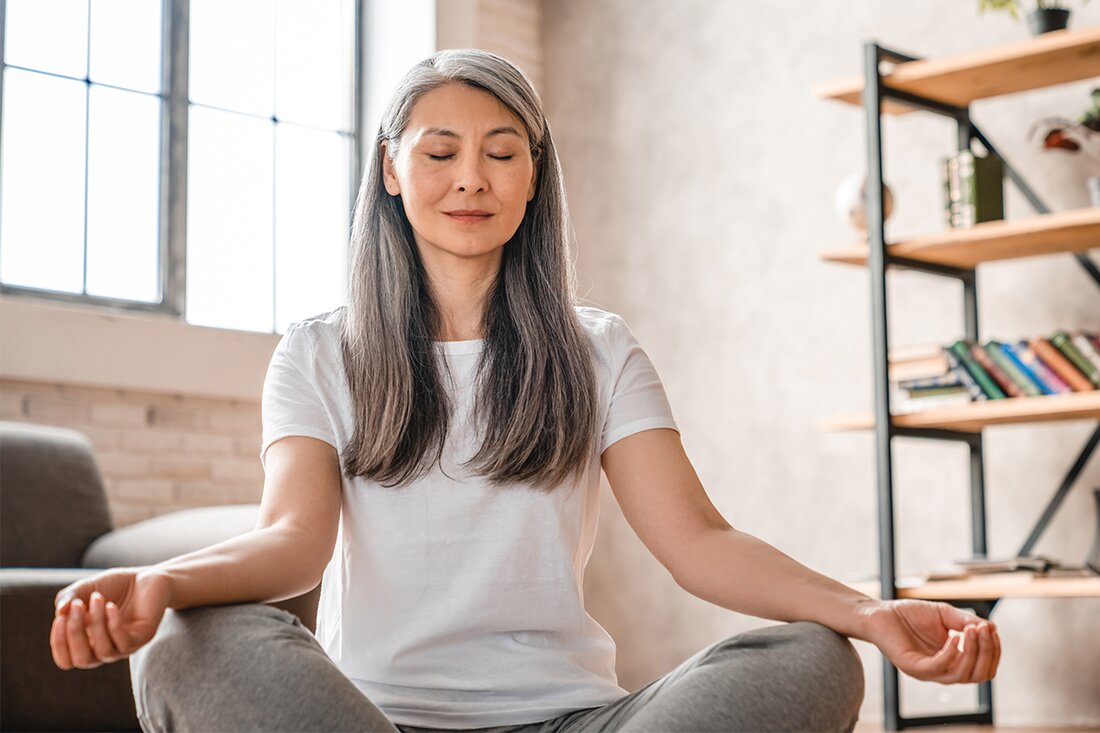Stress Awareness Month: Five Ways to Reduce Stress Now
April is Stress Awareness Month and it's safe to say that the last 12 months have challenged our resilience and our ability to cope with stress! Covid-19 has turned our world upside down as we have had to deal with things like home schooling, isolation, financial worries, job losses, social distancing and numerous lockdowns. Levels of stress, depression and anxiety rose during lockdown for carers and parents schooling at home. Added to this is increasing feelings of loneliness in the UK, with one in four adults saying they have felt lonely in the last two weeks...

Stress Awareness Month: Five Ways to Reduce Stress Now
April is Stress Awareness Monthand it's safe to say that the last 12 months have challenged our resilience and our ability to deal with stress! Covid-19 has turned our world upside down as we have had to deal with things like home schooling, isolation, financial worries, job losses, social distancing and numerous lockdowns.
Levels of stress, depression and anxiety rose during lockdown for carers and parents schooling at home.Added to this is increasing feelings of loneliness in the UK, with one in four adults stating that they have felt lonely in the last two weeks and are lonely “Higher among young people, unemployed people, full-time students and single parents”. Then pile on the rising falls of “Coronasomnia”, a new term to describe the link between increased stress due to the pandemic causing insomnia. Needless to say, it was the prefect storm where stress manifested itself.
Personally, over the past year I have dealt with the increasing stress and anxiety caused by the loss of work due to the pandemic and the associated financial impact. For me, stress has manifested itself in many ways through sleepless nights, tension headaches, tight shoulders, and feeling overwhelmed. Just to name a few.
Although there is light at the end of the tunnel and lockdown restrictions are easing, it is still vital that we continue to support our mental, physical and emotional wellbeing so that we can maintain our resilience when stress occurs.
Here are my 5 ways to de-stress now:
Pause and breathe
If you're feeling stressed or overwhelmed, take a moment to stop:
S.great what you do. Give yourself a moment to pause and step back from the situation.
Take a few conscious deep breaths. Notice that you are breathing in and out through your nose. You can place one hand on your chest and one hand on your stomach to feel your breath.
OOffer your experience as it includes thoughts, emotions, and physical sensations. Tune in and engage with whatever arises for you without passing judgment.
Pproceed carefully. Think about how you want to proceed and take it step by step.
Try restorative yoga
The practice of restorative yoga allows the nervous system to regain balance, deepen the breath, and calm the mind. The poses are floor-based and held for several minutes (5 to 20 minutes per pose), using props such as bolsters, blankets, blocks, and eye bags to help the body rest deeply. It is a gradual process of downshifting the nervous system from our stress response, the sympathetic nervous system (SNS), to the parasympathetic nervous system (PNS), which is our relaxation response.
Meditate
Developing a consistent meditation practice has been scientifically proven to help reduce stress. A 2016 Harvard University study found this Meditation had longer-lasting effects on stress reduction than vacations.If you're new to meditation, use an app like Headspace or Insight Timer that offers free guided meditations. Once you have established your practice, you can meditate without guidance.
Incorporate mindfulness into daily life
Take time to slow down and find a short daily activity that you can do mindfully. It might be brushing your teeth, drinking a cup of tea, or washing your hands. Focus on the activity and notice any thoughts, feelings, or emotions that arise from moment to moment.
Connect with nature
A long walk in the woods or a visit to your local park can be a wonderful antidote to the stresses of everyday life. When we connect with nature, we connect with the source of Mother Earth. It gives us a chance to step away from our technology, stretch our legs and breathe fresh air.
Tawny teaches 15 weekly Restorative Yoga classes on Zoom every Thursday from 6-7pm. Further details and bookings can be made via their website.
My Favorite Rest and Reset Accessories:
Yogamatters Bolster– A must for any restorative yoga practice. Pads are incredibly versatile to either support the body or to apply weight to the body to provide more grounding.
Yogamatters meditation cushion– Finding solace in sitting for meditation is a must. These meditation cushions provide support and allow the pelvis to tilt forward to maintain a long spine.
Wherever you go, there you are by Jon Kabat-Zinn– A wonderful introduction to mindfulness teaching from Jon Kabat-Zinn, creator of the Mindfulness Based Stress Reduction (MBSR) program.
Written by Yogamatters

 Suche
Suche
 Mein Konto
Mein Konto
